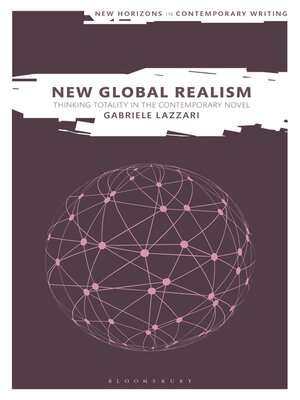New Global Realism
ebook ∣ Thinking Totality in the Contemporary Novel · New Horizons in Contemporary Writing
By Gabriele Lazzari

Sign up to save your library
With an OverDrive account, you can save your favorite libraries for at-a-glance information about availability. Find out more about OverDrive accounts.
Find this title in Libby, the library reading app by OverDrive.



Search for a digital library with this title
Title found at these libraries:
| Library Name | Distance |
|---|---|
| Loading... |
A comparative study of contemporary realist novels that employ totality as a method and a formal principle to represent the social and economic inequalities of the present, this book examines writing in English, Italian, Kannada, and Spanish by authors from Zimbabwe, Ghana, Italy, India and Mexico.
By theorizing four modalities of totalization employed by contemporary realist writers, this book explores the current resurgence of realism and challenges critical approaches that consider it naive or formally unsophisticated. Instead, it argues that realist novels offer a self-conscious and serious representation of the world we inhabit while actively envisioning new social designs and political configurations. Through comparative studies of novels by Fernanda Melchor, NoViolet Bulawayo, Vivek Shanbhag, Nicola Lagioia, Igiaba Scego, Yaa Gyasi and Roberto Bolaño, this book further explains why realism can be a powerful antidote to the skepticism about the possibility of making truth-claims in humanist research.
By theorizing four modalities of totalization employed by contemporary realist writers, this book explores the current resurgence of realism and challenges critical approaches that consider it naive or formally unsophisticated. Instead, it argues that realist novels offer a self-conscious and serious representation of the world we inhabit while actively envisioning new social designs and political configurations. Through comparative studies of novels by Fernanda Melchor, NoViolet Bulawayo, Vivek Shanbhag, Nicola Lagioia, Igiaba Scego, Yaa Gyasi and Roberto Bolaño, this book further explains why realism can be a powerful antidote to the skepticism about the possibility of making truth-claims in humanist research.







